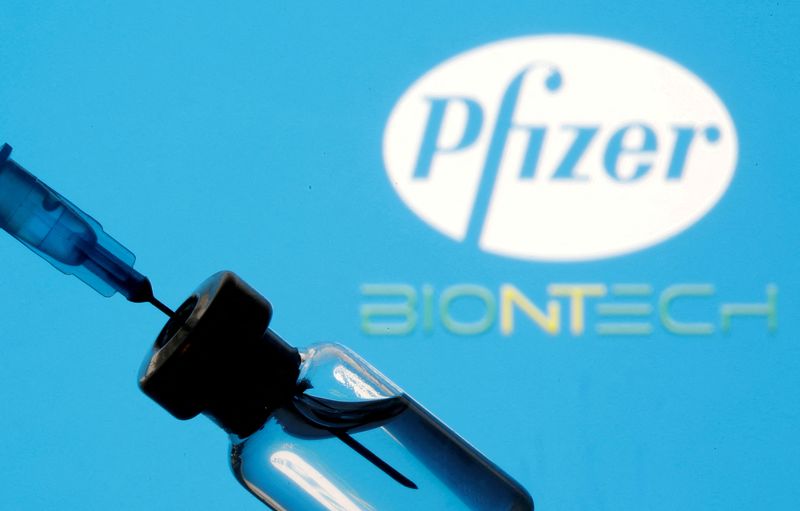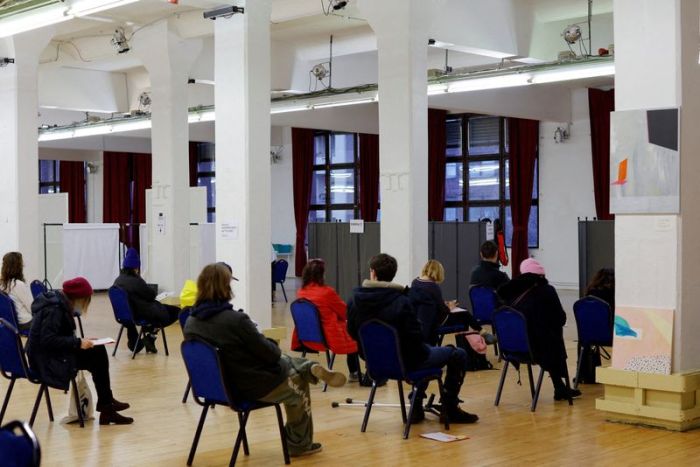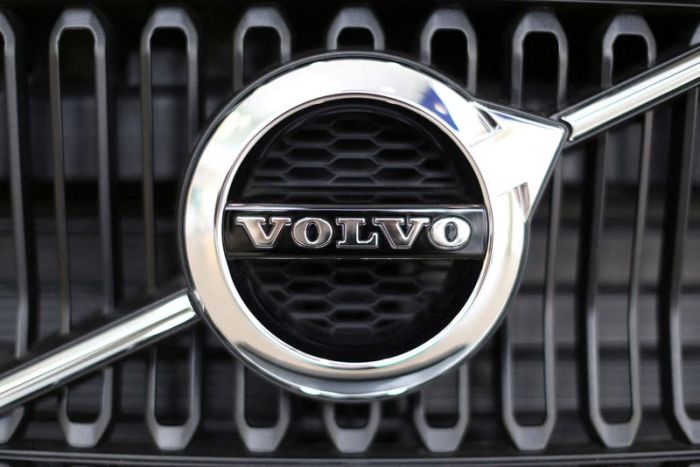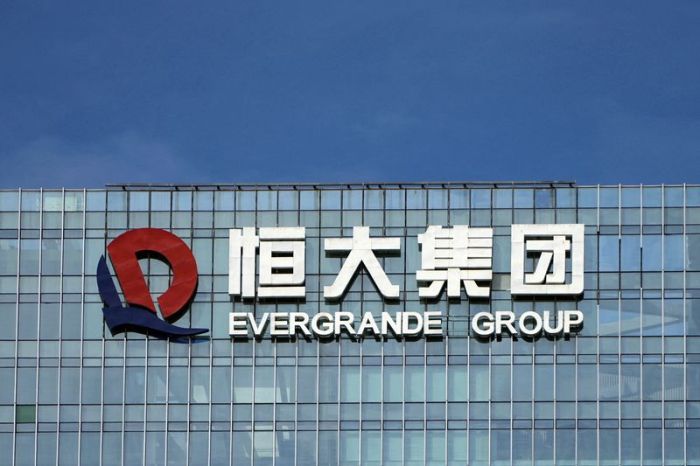By Mrinalika Roy
(Reuters) -Pfizer Inc and Germany’s BioNTech SE will develop an mRNA-based vaccine for viral infection shingles, collaborating for the third time after the success of their COVID-19 vaccine based on the same technology.
Pfizer, which is making an equity investment worth $150 million for the latest deal, partnered with BioNTech in 2018 for an Influenza vaccine and again in 2020 for the COVID-19 shot that has been used across the world and has brought in billions in sales for the companies.
The companies said on Wednesday they expect to begin clinical trials of the shingles vaccine, which will combine Pfizer’s antigen technology and BioNTech’s Messenger RNA platform technology, in the second half of 2022.
MRNA vaccines prompt the human body to make a protein that is part of the pathogen, triggering an immune response. BioNTech is also developing a vaccine targeting Malaria based on the technology.
If successful, the shingles vaccine will compete with GlaxoSmithKline’s two-dose vaccine Shingrix, which was approved by U.S. FDA in 2017. The vaccine brought in about 2 billion pounds in revenue in 2020.
An estimated 1 million cases of shingles occur annually in the United States, according to the U.S. Centers for Disease Control and Prevention.
BioNTech spokesperson Jasmina Alatovic said “there is still a high unmet medical need” for a vaccine for the infection.
Shingles typically develops in older adults who had chicken pox, or the varicella-zoster virus, when younger. Its hallmark is a painful rash that clears up within a month in most cases, but could sometimes lead to nerve pain that can linger for longer.
Pfizer and BioNTech said they will share development costs and gross profits from future sales of the shingles vaccine.
Pfizer will pay BioNTech $225 million in upfront payment, including a cash payment of $75 million.
(Reporting by Ankur Banerjee and Mrinalika Roy in Bengaluru and Riham Alkousaa; Editing by Shinjini Ganguli)























